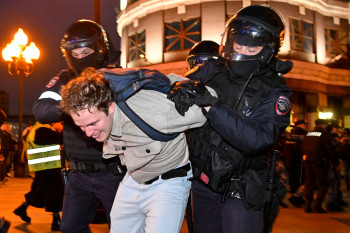Mobilization in Russia "will not generate significant usable Russian combat power for months" as it will take a long time to bring poorly trained Russian reservists to war readiness, the Institute for the Study of War reported on Sept. 21.
It is not even clear if this conscription will manage to offset Russian casualties, according to the ISW. "Russia's partial mobilization will thus not deprive Ukraine of the opportunity to liberate more of its occupied territory into and through the winter," reads the report.
Russian President Vladimir Putin did not connect the annexation of Luhansk, Donetsk, Kherson and Zaporizhzhia oblasts with the mobilization, "defending the need for it by referring to the length of the lines along which Russian forces are now fighting and Western assistance to Ukraine," the ISW.
"The formal Kremlin position has long been that NATO was pushing Ukraine to war with Russia, that NATO was preparing to give Ukraine nuclear weapons, and that NATO forces were taking up or preparing to take up positions in Ukraine," the ISW reported.
In a video address on Sept. 21, Putin declared a mobilization, saying it would primarily target the Russian Armed Forces' reserve personnel.
Moscow's proxies in the occupied territories of four Ukrainian oblasts say they will hold "referendums" to join Russia on Sept. 23-27.











